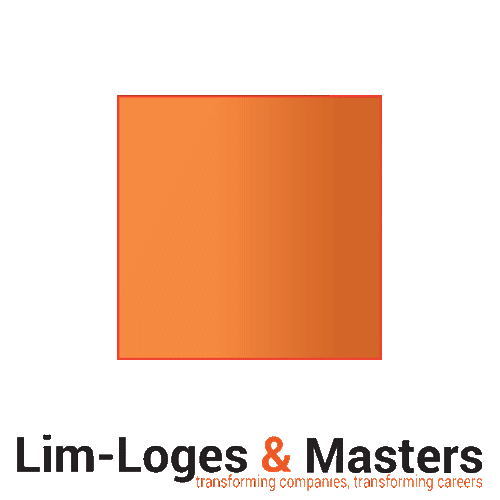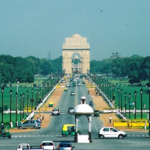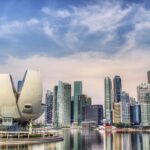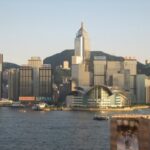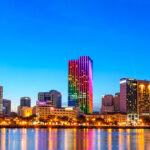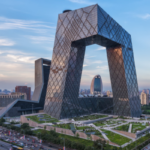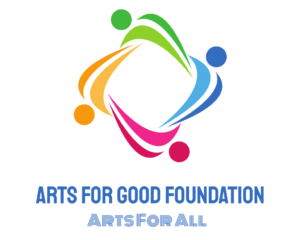
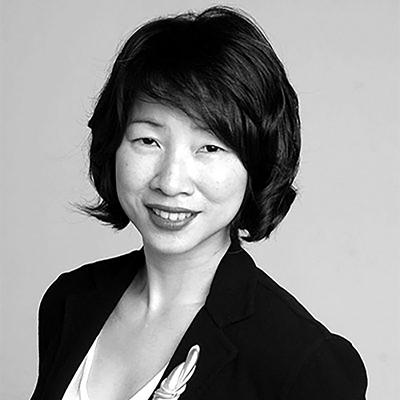
Lelia Lim
The Power of Art in the 4IR
Lim-Loges & Masters is a proud supporter of the Arts for Good Foundation – a social enterprise aiming to help de-escalate the issues of social polarisation and cultural divide among children and youths through Arts and promoting arts for all, arts for good, and arts for inclusion.
We interviewed Founder and CEO, Amanda Sun, about the great work the organisation does and how it supports the talent needs to be future-ready in the 4IR.
Hi Amanda, thank you for joining us. Can you tell us more about the Arts for Good Foundation?
“The Arts for Good Foundation started at the beginning of 2020 in Hong Kong. We are an impact-driven education social enterprise with a mission of fostering social inclusion through the power of arts and culture. We particularly target the younger generation, from age 9 to University students, to deliver our different programs.
“Our core values revolve around our belief that social inclusion is more than being inclusive to demographic minorities. We foster perspectives for the students in Hong Kong about Hong Kong and also looking outwardly at the world. We do this through art viewing ,art making, and community service through art, and also by working with art and education professionals to bring new perceptions to our past, current, and future.
“We’re trying to break the barrier of social and financial status and make art accessible to all to build a student-led art community and impact our own community together. We believe by making changes in the social network structure affect the levels of some basic parameters associated with polarisation. Therefore, societal impact and community connections are a key element of all the programs we deliver, including art viewing, art making and community service and the promotion of inclusion through art for all, no matter the financial or social backgrounds of the children.
“We want to break the prejudice around art and it only being for the privileged. We all need to look at our surroundings, from the artistic perspectives, and how it impacts our creation and our personal journey to create. We give new ideas and new viewpoints to those looking at their life and the possibilities of their future.”
With a larger focus on more ‘academic’ subjects such as science or maths, do you feel art is not considered a viable career option by many?
“Yes, it’s always been labelled as luxury, particular in Hong Kong, with a broad understanding that art is something to pursue in our spare time, but not a substance that harnesses soft skills for life, let alone create a viable living. For example, careers don’t exist for art guides and art docents as they are roles performed by volunteers or retired staff. However, these should be feasible professions. We give a new perspective to the art field that actually promotes art as an occupation. As a foundation, we are trying to build alternative career considerations and encourage young students coming through the arts to understand different perspectives and what can be created. We encourage students to consider art as their lifelong learning and a realistic career future for them, helping those who love arts but never believed they should pursue it. Many of these students are grateful for our support and return to help with our programs at the foundation.
Why do you think careers and skills in art are so meaningful in today’s world?
“Art is so multi-interdisciplinary, which is really important in our inter-correlated world. For an innovative education today, we need to explore how to bring interdisciplinary learning into the school setting and encourage thinking skills, particularly critical thinking skills, multiple perspectives, and numerous disciplinary capabilities. Art is a substance that provides this as it’s so diverse, inclusive and without boundaries. Artists today work with technology, often blending arts and science, pushing the boundaries of our thinking skills and our understanding of our surroundings. Careers in art are so important, especially in our ever-growing digital world and the rise of social media. Fostering deeper thinking skills and the way we look at the world and how we process information is why I set up the Art For Good Foundation; I think it’s vital for our future, especially in the Fourth Industrial Revolution.
“If you look at the world of robotics, scientists need to understand human empathy and emotions to design and create a dynamic robot. However, most engineers are result-oriented, so they focus on their mathematical thinking skills but lack an understanding of humanity and people’s lives. Engineering is a completely different mindset, so balancing it with softer skills from art must be substantial! Maybe a future engineer designing a robot should be trained in some aspects of art perhaps to help them succeed further?” We need connect our heads with our hearts for all kinds of innovations in the future.
Why is bringing art into education so important?
“In Hong Kong, the education system here seems to emphasise less on narrative skills and more on the analytical side – how to make things work. They’re really good at producing excellent students in medicine, science, and law. However, I believe that children should be encouraged to imagine first, beyond the perceived possibilities, before analysing what can actually be done. Those in an arts profession, or with skills in and an appreciation of art, are more inclined to think outside the box and dream a different world, so bringing art into education is substantial – it enhances, maybe changes, innovation.”
What skills and competencies do you think art harnesses?
“Storytelling skills. Being able to tell an inclusive story that connects people to art is important. Having an artistic mindset enables you to look at your life differently despite difficulties and setbacks. I also think being able to observe and understand people’s lives with respectful and ethical minds is an important skill for younger generations. And, as I mentioned just now, human-centric innovation which is critical, especially in today’s commercial world.”
Are there any future jobs in the art world that don’t exist yet, but you think could in the future?
“It’s interesting, as I think there will be new opportunities arising from inter-disciplinary collaborations and innovations. For example, maybe a nutritionist or food scientist could also be an artist. Or an engineer could be an artist. I think there will be a lot of crossovers in the future. With all the digital innovations and possibilities out there, I think art is not a singular subject. It would be powerful to incorporate it into different professions and utilise the alternative expertise that comes from art.”
On a final note, mental health is top of everyone’s agenda – and Covid has compounded this. How do you think art addresses issues around mental health, and its repercussions, for example, in the workplace?
“Art is a great stress release. I’ve experienced many personal and quite dramatic challenges in my life, which have been eased through art connection – visiting an art gallery or connecting with an artist. Also, art enables us to release our own stress and start to connect with others. I think the human connection that art brings to us is magical – it’s also an excellent form of meditation. Immersing yourself in people’s artwork allows you to connect with your inner self. In a world that’s so complicated, it’s a great non-verbal way to connect to yourself and other people.
“I believe no matter the financial, social or school system you’re from, we all want to connect with others, that’s our nature as human species. Art brings kids and young generations from very diverse social backgrounds together. And I think this translates within the workplace too.”
Thank you Amanda.
About Arts for Good Foundation
A social enterprise aiming to help de-escalate the issues of social polarisation and cultural divide among children through Arts and promoting arts for all, arts for good, and arts for inclusion.
About Lim-Loges & Masters
Lim-Loges & Masters is an award-winning boutique agency offering expertise in Executive Search, Transition Management and Disruption Management across Asia Pacific. LLM works with multinational companies seeking to transform their organisations through their people. Focusing on Asia, the LLM team helps companies minimise risks and manage talent through a deep understanding of Asia Pacific’s business climate. LLM has presence in Indochina, South East Asia, China, Hong Kong, India and its regional HQ, Singapore, with international affiliates in the UK.
